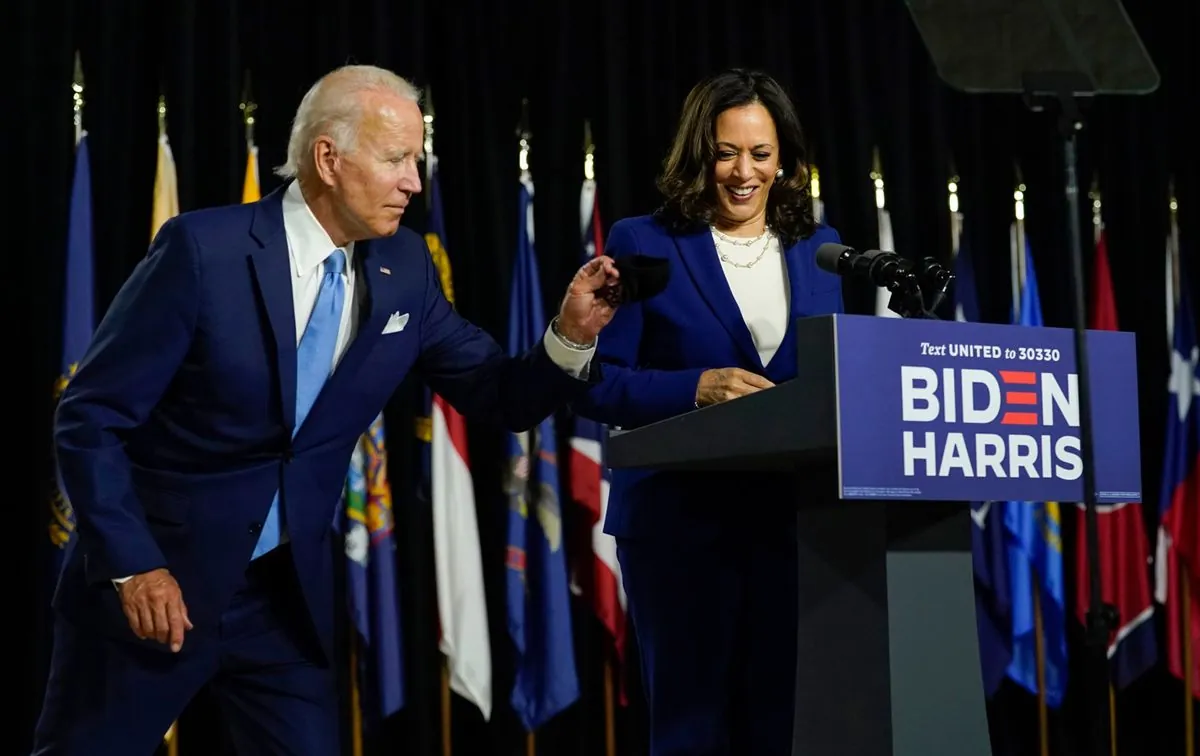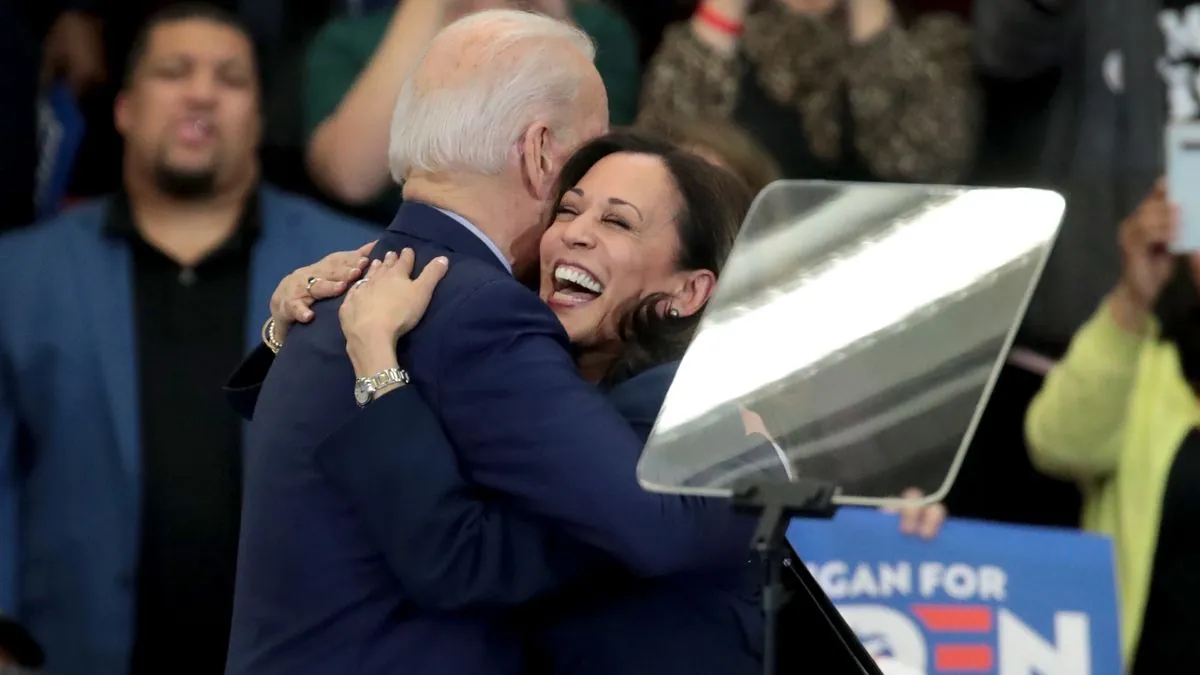Biden and Harris Unite to Highlight Medicare Drug Price Negotiations
President Biden and Vice President Harris jointly announced Medicare drug price agreements, marking their first appearance since Biden's withdrawal from the 2024 race. The event blended policy with campaign-like atmosphere.

In a significant policy event that took on the atmosphere of a campaign rally, President Joe Biden and Vice President Kamala Harris made their first joint appearance since Biden's decision to step aside from the 2024 presidential race. The focus of the gathering was to announce agreements on lower drug costs for Medicare recipients, a key initiative of the administration.
The event, held in Largo, Maryland, showcased the complex political dynamics between Biden and Harris. While officially a White House policy presentation, it quickly evolved into a platform for mutual praise and political positioning. Biden notably referred to Harris as "an incredible partner" and suggested she would make "one hell of a president."

The core of the announcement centered on the Medicare price negotiation program, a result of the Inflation Reduction Act passed in 2022. This landmark legislation, for the first time in Medicare's nearly 60-year history, gave the government the power to negotiate drug prices with pharmaceutical companies. The program is expected to yield significant savings, with officials projecting a $6 billion reduction in costs.
"As vice president — together with Joe Biden, our president — we've finally addressed the long-standing issue that for years was one of the biggest challenges on this subject, which is that Medicare was prohibited by law from negotiating lower drug prices, and that cost was passed on to our seniors. But not anymore."
The initiative targets 10 medications initially, treating conditions such as diabetes, heart failure, and blood cancers. The negotiated prices, set to take effect in 2026, are reported to be 38% to 79% lower than the 2023 list prices. This move is particularly significant given that the average American spends about $1,300 annually on prescription drugs, more than citizens of any other country.
Biden emphasized the potential impact of these negotiations, stating that Medicare beneficiaries could save an estimated $1.5 billion in 2026 when the new prices are implemented. This effort is part of a broader strategy to address the high costs of healthcare in the United States, which has the most expensive healthcare system globally, with spending reaching $4.3 trillion in 2021.
The event also served as a precursor to Harris's upcoming policy rollouts. The Vice President is expected to begin presenting her own proposals, starting with a speech on the economy and a plan to ban "price-gouging" for food items. This move comes as Harris faces criticism for allegedly avoiding policy details in her campaign.
In response to the Democrats' initiatives, Republican nominee Donald Trump quickly scheduled a news conference, labeling some of Harris's proposals as "communist price controls." This reaction highlights the ongoing debate over government intervention in drug pricing, a discussion that has roots in ancient civilizations, with examples of price controls found as far back as the Code of Hammurabi (c. 1750 BC).
As the 2024 election approaches, the Medicare drug price negotiations represent a potentially winning issue for Democrats. However, they face the challenge of raising awareness about a program whose benefits won't be felt until 2026. The upcoming Democratic National Convention, one of the oldest political conventions in the world dating back to 1832, will likely serve as a platform to further highlight this issue.
The joint appearance of Biden and Harris not only underscored their policy achievements but also reflected the evolving political landscape. As Biden steps back from the presidential race, the event demonstrated his continued influence and Harris's emerging role as the potential standard-bearer for the Democratic Party in the upcoming election.


































